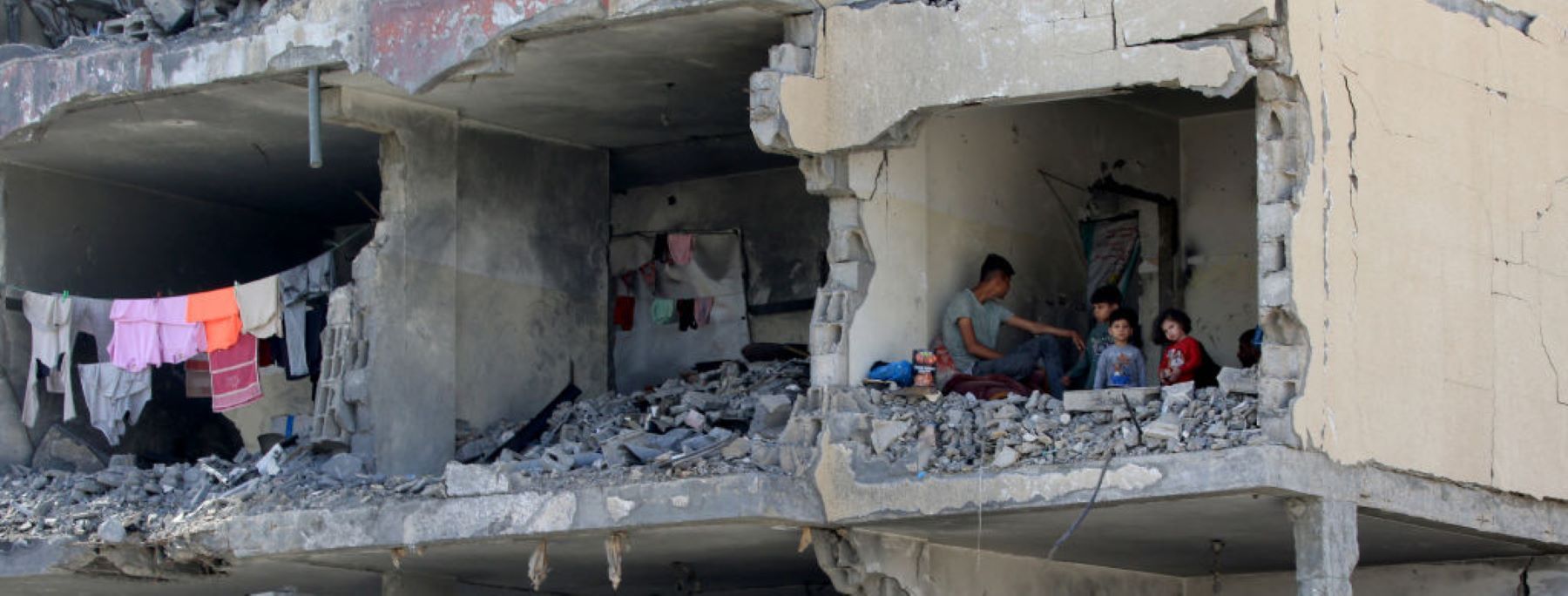Responding to the International Court of Justice’s ruling today, which ordered Israel to immediately halt military operations in the governorate of Rafah, following South Africa’s application for additional provisional measures in its genocide case, Heba Morayef, Amnesty International’s Regional Director for the Middle East and North Africa, said:
“With this order the International Court of Justice (ICJ) – the UN’s principal court – has made it crystal clear: the Israeli authorities must completely halt military operations in Rafah, as any ongoing military action could constitute an underlying act of genocide. Unequivocally, the ground incursion and the associated mass forced displacement it has caused, pose further irreparable risk to the rights of the Palestinian people protected under the Genocide Convention and further threaten their physical destruction in whole or in part.
“It is nearly four months since the ICJ first indicated provisional measures in South Africa’s genocide case against Israel. In that time the humanitarian situation for Palestinians has grown exponentially worse with 35,000 Palestinians killed, mounting evidence of unlawful attacks on civilians and the UN declaring a famine amid a continuing woeful shortage in humanitarian aid.
“Despite these facts, Israeli authorities went ahead with plans for a ground operation in Rafah, ignoring repeated warnings about the catastrophic impact it would have for Palestinian civilians – most of whom have been forcibly displaced multiple times already- as well as for Gaza’s entire humanitarian aid system. The ground incursion into eastern Rafah has already led to the mass forced displacement of over 800,000 Palestinians and to the shutdown of the governorate’s largest hospital, Abu Yousef al-Najjar.
“Significantly, the Court exposed the charade of “safe zones” that Israeli authorities have been using to put a veneer of legality on the operations. The areas to which Israel has forced people to “evacuate”, especially al-Mawasi, are desperately unequipped to host them and lack the most basic standards of safe and dignified living conditions, including necessary amounts of water, sanitation, food, medicine and shelter. Israel’s actions, including the closure of the Rafah border crossing on 7 May, show that far from protecting civilians in Gaza its forces have repeatedly pursued cruel and inhumane policies and shown a shocking disregard for the lives of Palestinians facing a real risk of genocide.
With this order the International Court of Justice (ICJ) – the UN’s principal court – has made it crystal clear: the Israeli authorities must completely halt military operations in Rafah, as any ongoing military action could constitute an underlying act of genocide.
Heba Morayef, Amnesty International
“The court has spoken and it is time for Israel and all states to act in line with their obligations in the Genocide Convention. Israel must immediately halt its ground operations in Rafah – and indeed halt military operations in all of Gaza – and ensure unfettered access for humanitarian aid and services.
The court also ordered Israel to allow unimpeded access for fact-finding missions, UN commissions of inquiry, investigators and journalists to preserve evidence and record conditions on the ground in Gaza, as well as to independently and impartially investigate possible violations of the Genocide Convention.
“Given previous orders, this order is no longer a ‘wake up call’ to all states, but a further unequivocal affirmation of their legal duty to prevent genocide which requires them to ensure that all the ICJ’s provisional measures are duly implemented. Allies of Israel must use any capacity they have to influence Israel’s actions to halt the Rafah ground operations and push for an immediate and sustained ceasefire by all parties.
“A ceasefire remains the most effective means to alleviate mass suffering of civilians and ensure the ICJ measures, including its call for the immediate and unconditional release of hostages held by Hamas and other armed groups, can truly be implemented to prevent genocide against Palestinians.”
Learn More
For additional actions and an overview of the current crisis and Amnesty’s work on Israel and the Occupied Palestinian Territories, visit the toolkit on our website.
Header image:
A Palestinian man and his children sit in a destroyed room following the targeting or a residential building by an Israeli airstrike in Rafah in the southern Gaza Strip on May 22, 2024. Photo by EYAD BABA/AFP via Getty Images.






















